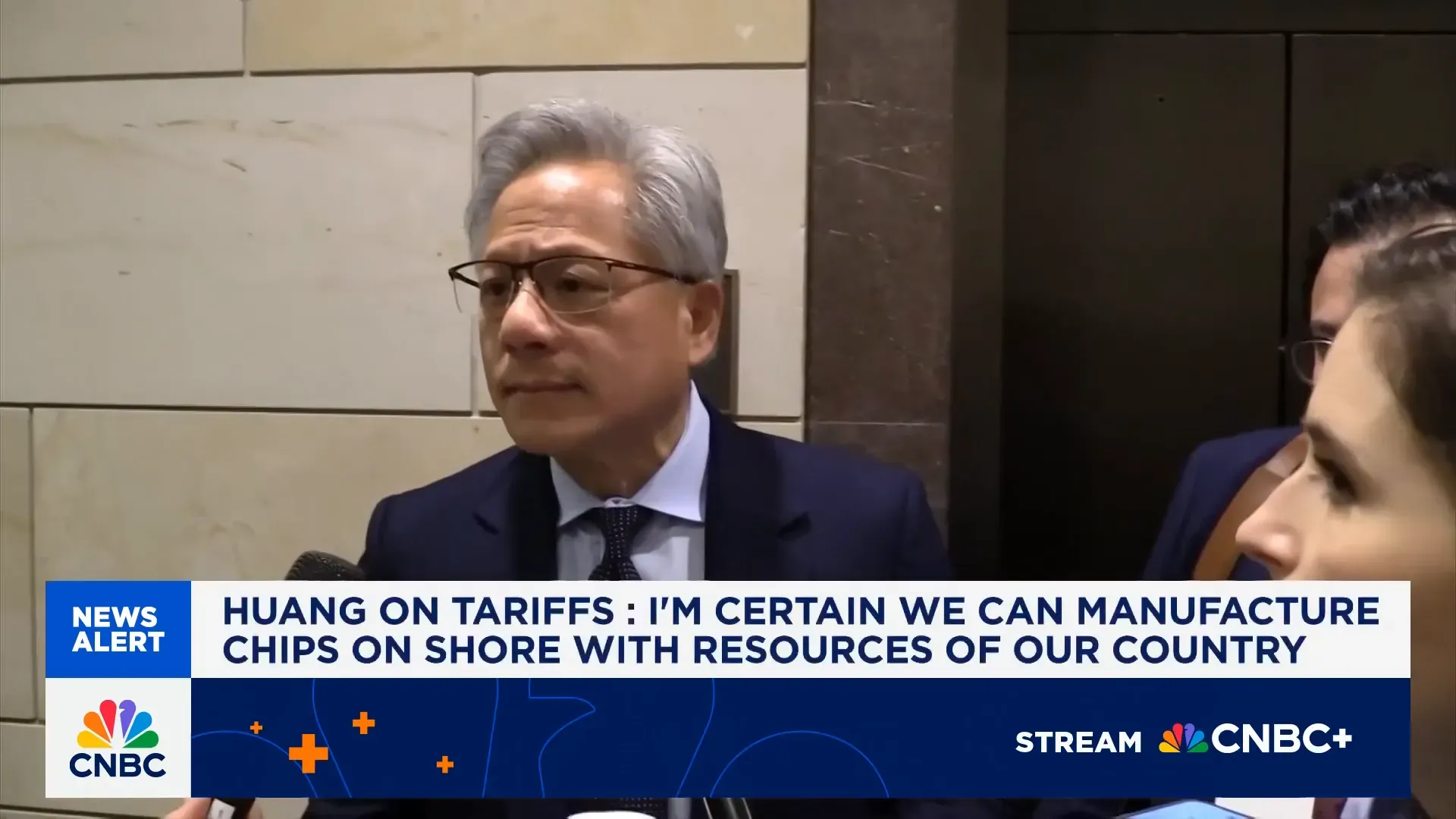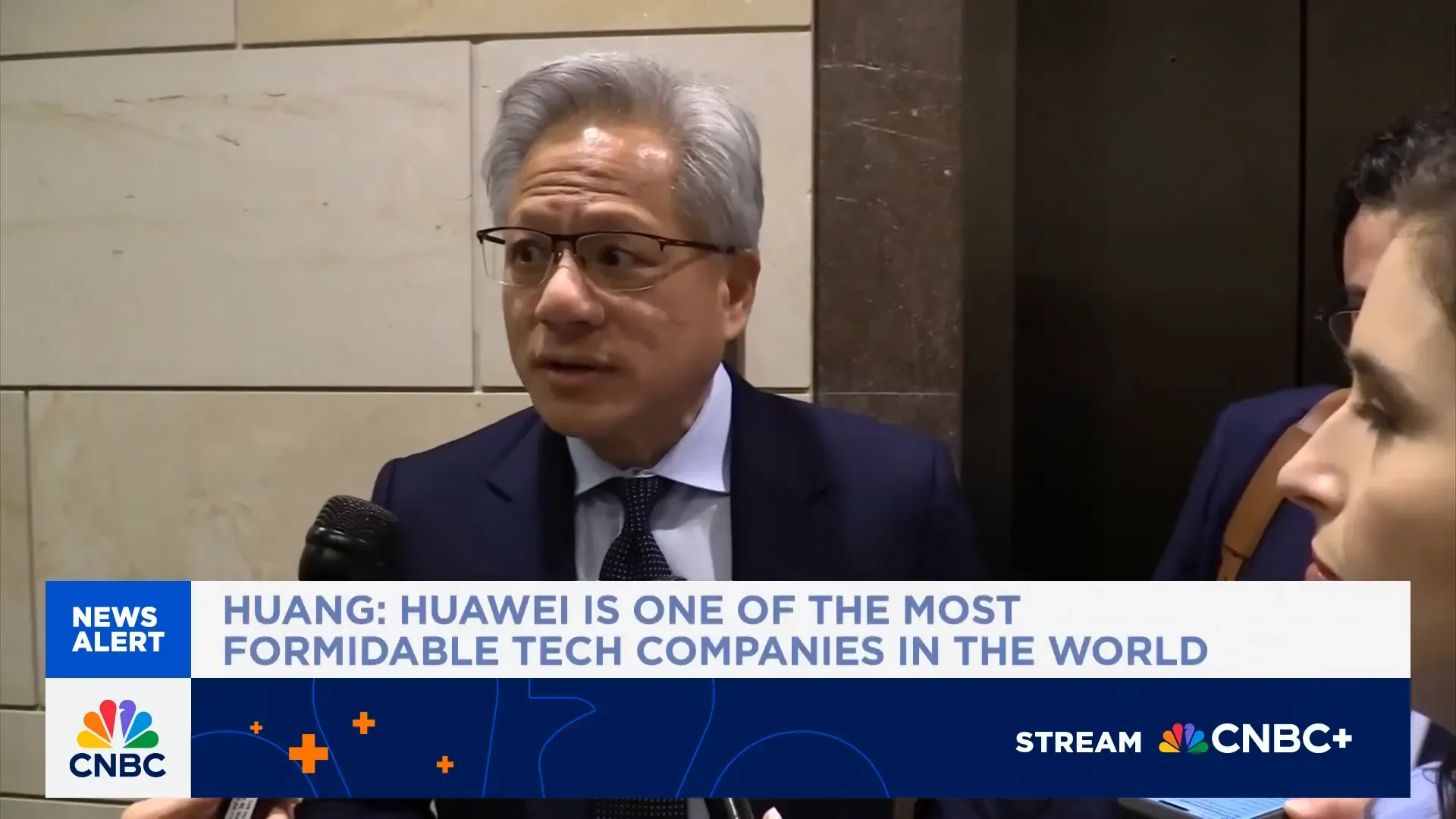At the last meeting of Congress, Jensen Huang CEO of NVIDIA has expressed interesting comments about the competition in the field of TO between the U.S. and China. Government Policy necessary to maintain leadership in this technology.
This article will delve into his perspective and analyze the impact of tax policy and the challenges facing the United States. AI Competition on a global scale and the future of this industry.
The Importance of Maintaining U.S. AI Competitiveness
The starting point of the talks was concern about the U.S. maintaining its leadership in the U.S. TO Jensen Huang emphasized, "Policies must support and accelerate domestic production ( onshore manufacturing )" so that the U.S. can compete in the long term.
He pointed out that with the country's resources and commitment, The U.S. has the potential to produce the chips and technology needed domestically without relying on foreign imports.

Huawei and the competition in the advanced chip market
When asked about the news from the Wall Street Journal, which stated: Huawei Huang acknowledged that Huawei is one of the strongest technology companies in the world. Especially in the field of processing. Networking, and software are key elements in AI development.
He added that the progress of Huawei Over the years, it has been going fast, and this has made the competition at the global level much more intense.

China is not a follower, but a neighboring competitor.
One of the key points that Jensen Huang emphasized was that "China is not behind us." He reiterated that China is very close to the U.S. in terms of AI technology, especially considering that more than half of the world's AI researchers are Chinese.
"This is a never-ending competition," Huang said, comparing it to the never-ending competition in the business world each quarter. Rather, it is a long-term struggle that requires constant commitment and resources.
Challenges of Tax Policy and Domestic Production
Jensen Huang also spoke about concerns about the effects of tariff ( tariffs This could lead to delays or higher costs for domestic production, which could hamper U.S. efforts to maintain AI leadership.
While he supports investment in the U.S. and wants to see production return to the country, he acknowledges that building an AI-enabled ecosystem is not just about AI, it's about the skills of the workforce. Energy, as well as other infrastructure that must be ready to support.
The Importance of the Chinese Market for NVIDIA
Despite the fact that NVIDIA is an American company and wants the US to win in technology, the Chinese market is still a very important market for the company.
After the U.S. government banned the sale of certain chips to China, causing NVIDIA to recognize heavy losses, Huang had to balance supporting domestic production and maintaining business relationships with the large Chinese market.
AI policy changes between the US government
In recent years, Huang and industry experts believe that having a clear and stable policy is necessary so that the U.S. can maintain its leadership position and play a role on the global stage in setting AI standards.
China as a Leader in Robotics and EV Technology
In addition to AI, China also stands out in Electric Vehicle Market ( EV and robotics technology, including humanoids, which is a fast-growing and exciting market.
Report from Morgan Stanley China has an advantage in robotics and related technologies. This is a sign that the technology competition will expand in many dimensions, not just AI.
Technical terms to know about AI and technology
- AI (Artificial Intelligence) : Artificial intelligence is a technology that enables machines to learn and perform tasks that require human thinking.
- Onshore Manufacturing : Domestic production to increase supply chain stability and reduce dependence on imports.
- Tariffs : Customs duties collected when goods are imported or exported, which can affect production costs and competition.
- Robotics : Robot technology used in various production or services, including humanoids with humanoid characteristics.
- Chip : A chip or microchip is an electronic component used to process data in a computer and a smart device.
Conclusion from Insiderly
Jensen Huang's comments reflect that the AI race between the U.S. and China is not a matter of lagging behind or a clear advantage. The U.S. has the advantage of resources and innovation, but faces challenges from tax policy and political uncertainty.
Creating an ecosystem that supports AI in a comprehensive way, including employee skills, energy, and infrastructure, is necessary to maintain leadership, and there must be clear and sustainable policies in place to build confidence in the industry.
While China is accelerating the rapid development of technologies in both AI, robotics and EVs, the U.S. must not be careless and must plan carefully to continue to compete on the world stage.
last This competition is not just about technology, but also a competition of visions and policies that support the growth of innovation in the long term.


